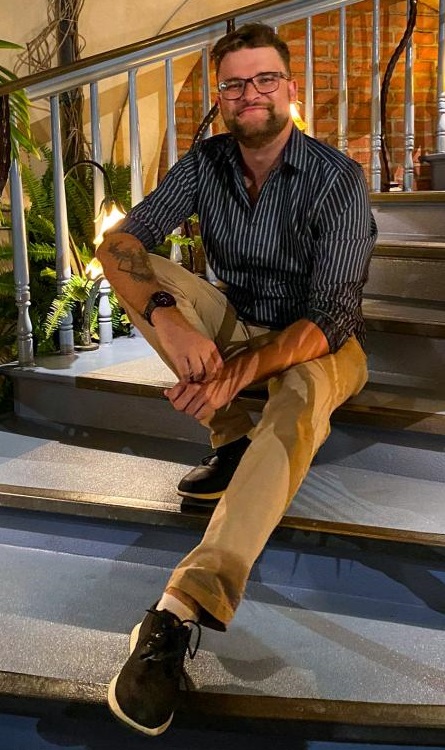Abhinav Gandhi
As an international student, I have had to worry about VISA fees, understanding cryptic healthcare systems, and finding affordable housing while navigating graduate school. Stipends at WPI have not kept up with the rising costs of living and covering additional expenses such as VISA fees, international flights, and supporting family is next to impossible. To add some perspective, approximately 60% of our grad student population consists of international students from 62 countries.
I have been at WPI since 2018 when I started a Master’s in Robotics. In my time here, I have taken up various student worker roles at WPI ranging from hourly positions: manufacturing assistant, grader to stipend based: TA and RA roles. Upon hearing about the unionization effort on-campus, I immediately signed up to help organize the movement. Besides playing a key role in organizing, I have worked closely with peers to form an International Students Working Group (ISWG) that is a forum for discussing issues specific to international students. We hosted an ISWG panel pre-election to hear from the larger community and address their concerns about unions. Along with colleagues, I represented our community at the table during negotiations for an election agreement with WPI admin.
I will continue devoting my time and unique perspectives by drawing from my lived experience at WPI. As part of our bargaining committee I would make it my priority to ensure that our larger community remains informed of the committee’s progress, collective voices are heard, and concerns are addressed appropriately.

Sabine Hahn
I’ve witnessed my fair share of injustices that have occurred on campus as a graduate researcher. That is why a handful of colleagues and I decided to start this union effort in 2020. Since then, nearly all my free time has been spent talking to graduate workers in every other program towards one goal: A better WPI.
I have advocated for higher and on-time pay, better health insurance, tougher protections against harassment and discrimination, and fundamental changes to how our bureaucracy treats graduate workers and how it impacts our wellbeing and mental health – not just for PhD TAs and RAs, but ALL graduate workers in academic capacities.
I am uniquely qualified for this position: I have already sat across the table from management and been successful! I was part of the team that negotiated our election agreement with the administration and strongly backed the inclusion of hourly graduate workers despite administrative hesitancy.
My motivation for running for the bargaining committee is to continue the work I have been doing: I want to not only see our first contract come to fruition, but making sure our contract is the most inclusive and has the strongest protections and enforcement we can win as the graduate worker community.
Similarly with the election agreement, I will not back down in the face of adversity. My role is foundational to our success, and I recognize my responsibility to help us raise standards for graduate workers not just at WPI, but in all of academia.

Andrew McReynolds
Being part of our organizing committee and helping us win our union election with overwhelming support I have seen firsthand why a union is needed.
Given the rapidly increasing cost-of-living here in Worcester, many of us spend over 50% of our monthly income on rent and struggle to make ends meet. Without increasing our stipends, our ability to live in Worcester without incurring serious debt is nearly impossible. Additionally, both the mental health survey last fall and my experiences talking to graduate workers on campus highlight that we are facing a mental health crisis. The evidence is seen in the student fatalities documented on Boston.com and the challenges we face getting on-campus counseling or finding in-network mental health services. Even when we do, the cost of medications can be prohibitive with our insurance. We need to address these critical issues!
Our union effort can play a major role in facilitating change and healing across all of campus. I have seen firsthand how we can win improvements when I helped represent our union during discussions with admins and finalized our election agreement and in meetings with faculty to better inform them and discuss how we can work together as allies.
As a member of our bargaining committee, I want to continue the fight to improve our lives, ultimately creating a better WPI. With higher stipends, and better mental, dental, and vision care, we can focus on providing the highest quality teaching for our students and continue our cutting-edge research.

Jake Scarponi
I’m a first-year PhD student in Materials Science and Engineering, but before taking a year off to work, I spent five years at WPI in Aerospace Engineering, working summers in Facilities. After seeing how confident and excited my colleagues have been about unionization—and after watching that spirit manifest in our powerful election results—I’m running for the bargaining committee because I want to help deliver on the issues that inspired our organizing in the first place. I want to fight for a more equitable, democratic investment of resources into the productive forces that make WPI run! We will be better teachers and researchers when a strong contract allows us to worry less about housing burdens, lab budgets, healthcare coverage, and visa costs.
The time I’ve spent at WPI and on our organizing committee have allowed me to understand the community and where graduate workers stand on economic and workplace issues. Organizing for our union throughout the card drive and election while entering the spheres of other unionized and pro-labor groups in Worcester has expanded my understanding of what labor organizing can accomplish and how it can accomplish those things. I hope to bring these perspectives to the bargaining table while fighting for the demands my colleagues put forth, because every single one of us deserves to have their voice heard! This opportunity feels like the culmination of all the teamwork skills and labor issue literacy I’ve developed as a student, an athlete, a worker, and an organizer at WPI.

Gabriela Rovi
Over the past four years, I’ve seen a lot of things wrong at WPI on how the administration handles issues at the graduate level. It always seems as if our relationship with the university is one dictated by what is most convenient for the administration. Increases in health insurance cost? You are a student and must pay for those costs out of pocket. Days off and holidays given to students? This is your job and if you want time off it must be approved by your PI. It’s always a lose-lose situation for the graduate students.
In the past two years, I’ve served as a member of GSG and MHIT to better represent the concerns of the graduate student body to the administration, such as graduate student only spaces and better insurance. The wins for graduate students have been the result of extensive negotiations and hard-fought compromise. However, they don’t address the fundamental concerns of graduate students. My passion for these issues has not waned over the years, because I’ve found people, whether faculty, staff, or students, that truly care, but don’t have the power to make a change. And that’s how I felt, I wanted to make a difference for graduate students, but felt powerless even when invited to meetings with the highest levels of the administration. As a member of the Bargaining Committee and with the support of the GWU, I will make sure that our needs and concerns are heard, and change is enacted.

